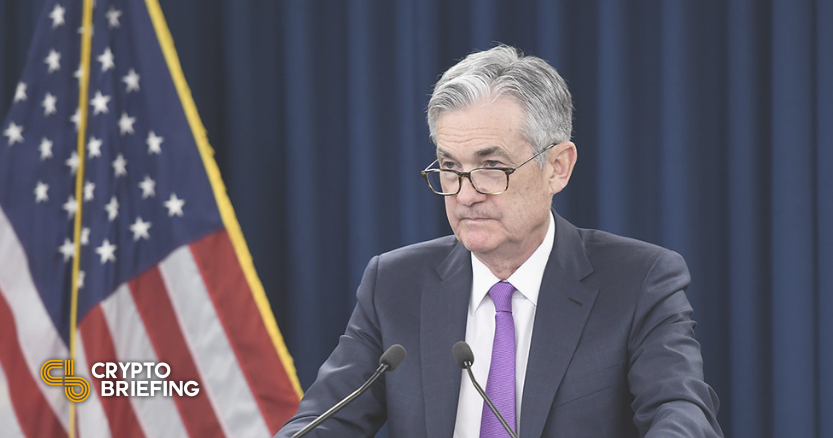
Flickr photo by Federal Reserve
Senate Confirms Jerome Powell to Second Term as Fed Chair
Chair Powell will continue to lead the Federal Reserve in another four-year term.
The Senate has confirmed Jerome Powell to serve another four-year term as the leader of the Federal Reserve. As chairman of the Federal Open Market Committee, the Fed’s monetary policymaking body, he is tasked with getting record inflation under control.
Powell Confirmed Until 2026
The U.S. Senate has confirmed Jerome Powell’s nomination to a second term as Fed Chair.
Following his re-nomination last year by President Joe Biden, Fed Chair Powell has been confirmed by the Senate in a vote of 80-19 to serve a second term as the head of the nation’s central bank. The Senate’s approval of Mr. Powell comes amidst the highest inflation the U.S. has suffered in four decades.
Former President Barack Obama made Jerome Powell a governor of the Federal Reserve, then former President Donald Trump nominated him as its chairman. At that time, Mr. Powell was approved by the Senate in an 84-13 vote. The Senate’s approval of Chair Powell to serve another term means that President Biden has appointed four of the seven governors of the Federal Reserve.
Facing inflation rates higher than 8%, the most severe since the 1980s, the Federal Reserve has increased interest rates in two consecutive FOMC meetings, the first time it has done so since 2006. Last week, it hiked rates by 50-basis points (0.5%), the steepest hike in the federal funds rate since 2000. Powell said that the Committee planned to increase rates by a half percentage point at each of the next two FOMC meetings, though the situation remains dynamic and subject to adaptation. He does not expect the Fed to increase rates faster than 0.5% at a time, though. While Mr. Powell has emphasized the Fed’s view that the economy remains strong, he has warned that it would be difficult to bring down inflation without causing a recession.
Despite Powell’s recent hawkishness, many of the Senate’s dissenting votes stemmed from dissatisfaction with the high inflation. For example, Senator Richard Shelby said that Mr. Powell should not be rewarded in light of the record-breaking inflation.
The regional reserve banks of the Federal Reserve system are also in flux in terms of their leadership. The Boston Fed and Dallas Fed will both be represented under new leadership this summer, and the heads of both the Kansas City Fed and Chicago Fed are slated to retire soon.
Disclosure: At the time of writing, the author of this piece owned BTC, ETH, and several other cryptocurrencies.
